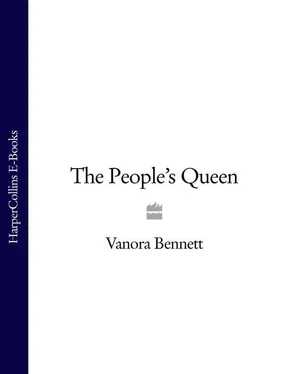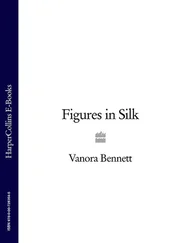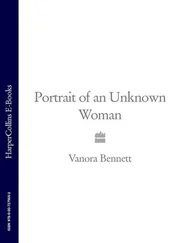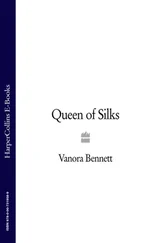The People’s Queen
Vanora Bennett
For my mother
Cover Page
Title Page The People’s Queen Vanora Bennett
FORTUNE’S WHEEL FORTUNE’S WHEEL The picture on the left shows the capricious goddess Fortune, as she was often displayed in the rose window of medieval English churches, teasing her victims with the hope of lasting wealth and power. The greedy, feverish people rising up Fortune’s ever-turning wheel, on the left, are gloating, regnabo , boastful Latin for ‘I shall reign’. The person at the top, who has achieved every ambition, crows, regno , or ‘I reign’. The terrified people on the right of the wheel, going down, are looking back at their moment of glory, wailing, regnavi , or ‘I used to reign’. And the one falling off at the bottom whimpers, sum sine regno ; ‘I am without a kingdom’ or ‘I have been left with nothing’. The message understood by every congregation – that pride comes before a fall – took on new significance after the Black Death. This devastating outbreak of plague killed off one-third of the people of Europe in the middle of the 14th century, when my novel begins. The catastrophe ended an era of belief that men were born to fixed and unchangeable positions in society. With survivors everywhere grabbing for a share of the spoils left by the departed, an ambitious few started rushing towards high estate with a speed and determination never seen before. Envious onlookers could only hope that these winners would soon fall from the pinnacle of power, as suddenly and dramatically as they had risen.
PROLOGUE A World Ends
PART ONE Regno I reign
ONE
TWO
THREE
FOUR
FIVE
SIX
SEVEN
EIGHT
NINE
TEN
ELEVEN
TWELVE
THIRTEEN
FOURTEEN
FIFTEEN
SIXTEEN
SEVENTEEN
EIGHTEEN
NINETEEN
TWENTY
TWENTY-ONE
PART TWO Regnavi I used to reign
TWENTY-TWO
TWENTY-THREE
TWENTY-FOUR
TWENTY-FIVE
TWENTY-SIX
TWENTY-SEVEN
TWENTY-EIGHT
TWENTY-NINE
THIRTY
THIRTY-ONE
THIRTY-TWO
THIRTY-THREE
THIRTY-FOUR
THIRTY-FIVE
PART THREE Regnabo? Shall I reign again?
THIRTY-SIX
THIRTY-SEVEN
THIRTY-EIGHT
THIRTY-NINE
FORTY
FORTY-ONE
EPILOGUE A World Begins
HISTORICAL NOTE
Acknowledgements
About the Author
Also by Vanora Bennett
Copyright
About the Publisher
The picture on the left shows the capricious goddess Fortune, as she was often displayed in the rose window of medieval English churches, teasing her victims with the hope of lasting wealth and power.
The greedy, feverish people rising up Fortune’s ever-turning wheel, on the left, are gloating, regnabo , boastful Latin for ‘I shall reign’.
The person at the top, who has achieved every ambition, crows, regno , or ‘I reign’.
The terrified people on the right of the wheel, going down, are looking back at their moment of glory, wailing, regnavi , or ‘I used to reign’.
And the one falling off at the bottom whimpers, sum sine regno ; ‘I am without a kingdom’ or ‘I have been left with nothing’.
The message understood by every congregation – that pride comes before a fall – took on new significance after the Black Death. This devastating outbreak of plague killed off one-third of the people of Europe in the middle of the 14th century, when my novel begins. The catastrophe ended an era of belief that men were born to fixed and unchangeable positions in society. With survivors everywhere grabbing for a share of the spoils left by the departed, an ambitious few started rushing towards high estate with a speed and determination never seen before. Envious onlookers could only hope that these winners would soon fall from the pinnacle of power, as suddenly and dramatically as they had risen.
Footsteps.
Kate stirred. She was lying on the floor, on her side. She must have managed to fall asleep. She was stiff. Her hip was digging into the packed earth. It was hot already, and there was a burning strip of light coming through the shutters. It took her a moment to understand what she was hearing.
Someone sauntering along the lane outside, with a cheerful, confident, light stride. Whistling.
Kate scrambled heavily to her feet. With the baby inside her kicking and punching, full of energy and raunch, keen to be out and breathing God’s air, and with her own heart pounding like the millstream paddles in the spring melt, she rushed to the doorway.
There’d been nearly sixty people living in Great Henney just the other day. They’d all gone. Or that’s how it seemed. She’d heard no other footsteps for at least a day, sniffed no smoke on the air, no cooking of broth or eggs last evening. She’d thought she was alone, with just the panicky lowing of lost cows, and the anxious clip of dogs’ paws, and the stink. So who could be striding about like that now, whistling the kind of jaunty dance tune you could kick your heels up to?
It was only when she was almost out in the daylight that she stopped. It was too easy to hope. She shouldn’t be rash. This person might mean danger.
She dropped to her knees, below a passer-by’s eye level, and peered cautiously through leaves and branches. She felt as wild and scared down there as a woodland beast. It was only the hope she couldn’t quite suppress that seemed human.
Kate could see brightness in the hedgerow. The midsummer flowers were still glowingly alive, the birds singing, the insects buzzing. There were stripes of corn still yellowing in the field, greener stripes of rye and barley, and the fronds of beans.
But as soon as she was close enough to the doorway to see all the things that seemed so normal, she was also close enough to get a noseful of the stink. It seemed worse every time, but what could you expect? It was a hot day. Not that she could actually see any human bodies from here. But they must be there. What she could see were the corpses of the sheep on the common in front of the field. All dead, hundreds of them. They’d started dropping at the same time as the people. There were flies rising drunkenly in the grass, clouds of flies, buzzing from one still mound to the next.
She and Dad had buried Tom three days ago, and Mum, before Dad went off on the penitents’ procession. An hour, he said. But he didn’t come back. And the baby would come any day now. Maybe tonight.
But now, in bright daylight, there was this woman, a stranger, who didn’t seem to have a care in the world, coming up the lane towards her. Despite herself, despite the possible danger, Kate craned forward.
The stranger was a sharp-faced, tall thing, with pale freckly skin, and ginger hair peeping out under her kerchief, and skinny limbs. She was maybe thirty. The woman didn’t bother to pretend she couldn’t see Kate staring at her. She just stared back down with frank interest, then nodded, and said, quite matter-of-factly, quite cheerfully, ‘That baby’s not already started coming, has it?’
The words were so normal that Kate suddenly felt ashamed to be down on her knees, like a wild beast.
Blushing furiously, she shook her head and started to raise herself from the floor, grateful for the warm splintery ordinariness of the door frame under her hands, hot with relief that she wasn’t alone any more.
‘Backache,’ the woman said, still assessing her with that not unfriendly look. ‘Terrible, that can be, when you’re as far gone as you are. Gah. Tell me about it.’ She sniffed and stuck out a hand; she took Kate’s arm and hauled the girl the last few inches till they were both standing, not too close, one on each side of the threshold. ‘Still,’ the woman went on. ‘One thing.’ She eyed Kate’s bump, and Kate thought there was something almost hungry in her look. ‘It’s not all just dying, whatever they might say. God destroying the race of Adam, my arse. Here’s one bit of new life coming in, anyway. So. Not all bad, is it?’
Читать дальше












